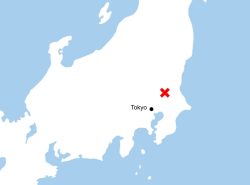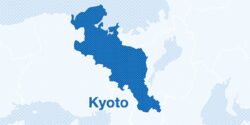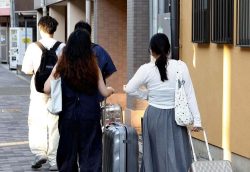11:27 JST, November 27, 2023
TOKYO (Jiji Press) — The number of children in Japan diagnosed with anorexia nervosa, an eating disorder, remained high in the third year after the outbreak of COVID-19, a survey by a government-linked institute has found.
Anorexia nervosa is a disorder in which people have abnormally low body weight as a result of excessive dieting or vomiting after consuming food. People suffering from the condition risk it affecting their everyday life.
The number of anorexia nervosa cases among children spiked some 50% in fiscal 2020, when the novel coronavirus crisis began, from fiscal 2019. Cases in fiscal 2022 were 40% higher than the level in fiscal 2019, before the pandemic, according to the survey by the National Center for Child Health and Development.
The government downgraded COVID-19 to Category V, which also includes seasonal influenza, under the infectious disease control law in May this year, and novel coronavirus-related movement restrictions have been lifted.
Still, it is unclear when the physical and mental impacts of the prolonged pandemic will let up. The center continues to call for careful consideration to be given to children.
For the survey, the center sent questionnaires to 31 hospitals around the country between April and June this year. Twenty-three of the hospitals gave valid responses on patients under 20 who were diagnosed with anorexia nervosa on their first visits to outpatient care in fiscal 2022, which ended in March 2023.
According to the survey, the number of patients stood at 276, up 40% from the fiscal 2019 level of 199, with boys accounting for 31 and girls 245. The total figure was still high although it was down from 313 in fiscal 2020 and 319 in fiscal 2021.
Data using a different tally of valid responses showed that the number of children newly hospitalized for anorexia nervosa came to 183 in fiscal 2022, up around 60% from fiscal 2019.
The number is on a rising trend, and there are suggestions that children with serious symptoms may have increased.
“The physical and mental toll of factors such as suspensions of school events and recommendations for eating school meals without talking to each other will not subside soon, and it is unclear whether (anorexia nervosa) patients will decrease following COVID-19’s shift to Category V,” said Tatsuya Koeda of the center, who was in charge of the survey.
"Society" POPULAR ARTICLE
-

M4.9 Earthquake Hits Tokyo, Neighboring Prefectures
-

Israeli Tourists Refused Accommodation at Hotel in Japan’s Nagano Pref., Prompting Protest by Israeli Embassy and Probe by Prefecture
-

M7.5 Earthquake Hits Northern Japan; Tsunami Waves Observed in Hokkaido, Aomori and Iwate Prefectures
-

Tsukiji Market Urges Tourists to Avoid Visiting in Year-End
-

High School in Kyoto Says Students Shoplifted during Recent School Trip to Bali, Indonesia
JN ACCESS RANKING
-

Tokyo Economic Security Forum to Hold Inaugural Meeting Amid Tense Global Environment
-

Keidanren Chairman Yoshinobu Tsutsui Visits Kashiwazaki-Kariwa Nuclear Power Plant; Inspects New Emergency Safety System
-

Imports of Rare Earths from China Facing Delays, May Be Caused by Deterioration of Japan-China Relations
-

University of Tokyo Professor Discusses Japanese Economic Security in Interview Ahead of Forum
-

Japan Pulls out of Vietnam Nuclear Project, Complicating Hanoi’s Power Plans

























